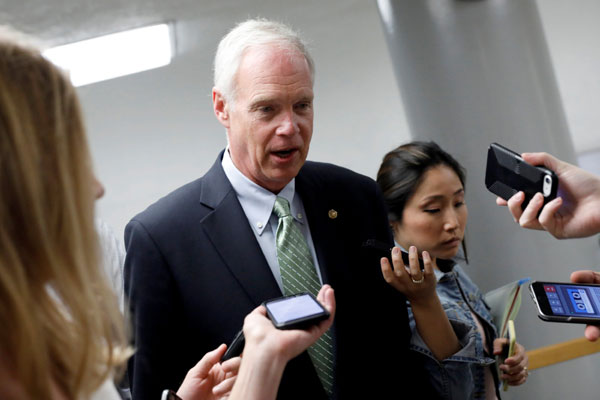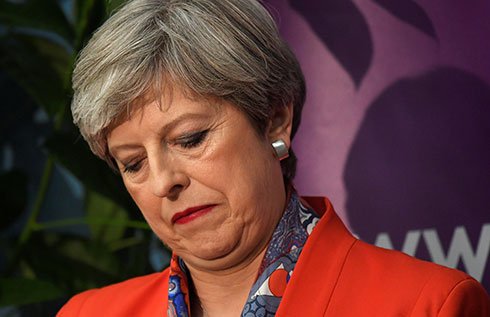Third GOP senator indicates he might oppose health care bill
 |
|
Sen. Ron Johnson (R-WI) speaks with reporters about the Senate health care bill on Capitol Hill in Washington, US, July 12, 2017. [Photo/Agencies] |
Sen. Ron Johnson, a Wisconsin Republican, said moderate GOP senators "basically confirmed" to him that Senate Majority Leader Mitch McConnell, R-Ky., assured them last week that Medicaid cuts planned by the legislation would "never happen" because they are too far in the future.
"It's from my standpoint a pretty serious breach of trust, those comments," Johnson, a conservative re-elected last year, told reporters.
He added, "Last week I was strongly urging colleagues to vote" to begin debating the measure, a critical vote expected as early as next week. "I'm not doing that right now," he said.
Johnson's opposition would be fatal to the Republican drive to repeal much of President Barack Obama's health care overhaul because two other GOP senators have already said they'll vote no: Maine's Susan Collins and Kentucky's Rand Paul. Facing uniform Democratic opposition, McConnell needs 50 of the 52 Republican senators to back the measure so Vice President Mike Pence could cast the tie-breaking vote.
The comments by Johnson came after an expected showdown this week was postponed because Sen. John McCain, R-Ariz., was recovering from a Friday procedure to remove a blood clot above his left eye. His office said he'd recuperate in Arizona for a week, and several senators said Monday they expected McCain, 80, to return quickly.
"We hope John McCain gets better very soon," President Donald Trump said. "Because we miss him. He's a crusty voice in Washington. Plus we need his vote."Gearing up for that vote, around a half-dozen GOP senators were meeting with Trump and Pence at the White House late Monday in what the White House billed as a strategy session. All senators attending were supporting the bill, and the group included No. 2 Senate GOP leader John Cornyn of Texas and No. 3 leader John Thune of South Dakota.
Conservative support for the legislation has hinged in part on the measure's planned $772 billion in 10-year cuts to Medicaid, the federal-state health insurance program for the poor, disabled and nursing home patients. But only $35 billion of those cuts occur over the next two years; more than half don't take effect until 2024, 2025 and 2026, according to the nonpartisan Congressional Budget Office.
- More hurdles as Senate again delays vote on GOP health bill
- Senate delays vote on GOP healthcare
- US Senate to call on Trump's son to testify
- US Senate healthcare bill would slash Medicaid, keep taxes on wealthy
- Trump says OK after Senate Republicans delay healthcare bill voting
- Senate Republicans unveil Obamacare replacement bill, but fate uncertain



















